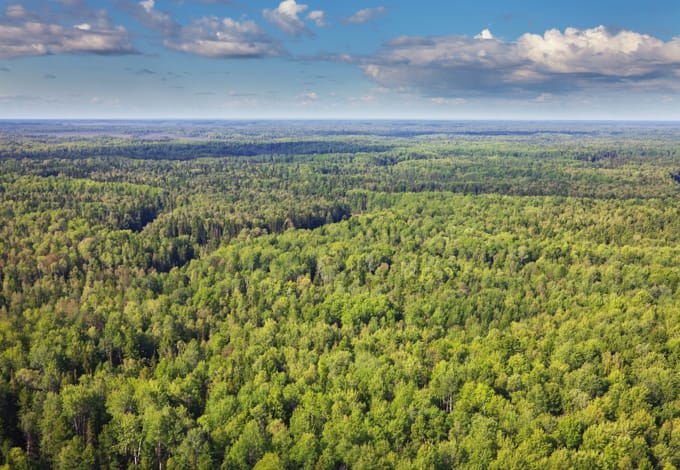Manomet Inc.’s research into the effects of climate change contributed to a recent report from the United States Department of Agriculture (USDA) Forest Service showing the vulnerability of forest ecosystems across New England. The report found that in six New England states and Northern New York, many economically and culturally important tree species and forest communities will face increasing threats under warmer and more variable conditions, according to a new assessment of the vulnerability of the region’s forests to climate change.
Manomet was one of more than thirty National Forest managers, state natural resource managers, other federal agencies, universities, and conservation organizations who contributed to the report: “New England and Northern New York Forest Ecosystem Vulnerability Assessment and Synthesis: A Report from the New England Climate Change Response Framework Project.” “This research illustrates how important it is for forest managers and landowners to consider the implications of climate change as they look to the future,” said Jennifer Hushaw, Applied Forest Scientist, Climate Services Program for Manomet and contributor to the report. “It is critical to the future of our forests that we identify and implement pragmatic on-the-ground solutions that meet management goals and increase natural system resiliency to climate change. We look forward to continuing our work to ensure that forest systems are managed sustainably and can adapt to the changing climate.”
Key findings of the USDA’s Forest Service report
- Over decades, conditions will deteriorate for iconic tree species in the region such as red spruce, sugar maple, paper birch, northern white-cedar, and balsam fir.
- Habitat conditions will become more favorable for species such as black cherry, yellow-poplar, and several oak and hickory species, all trees that are currently found south of New England.
- Precipitation is projected to increase in winter and spring across a range of climate scenarios. Intense precipitation events are expected to continue to become more frequent.
- Winters will continue to become shorter and milder. Snowfall is projected to continue to decline across the assessment area, with more winter precipitation falling as rain.
- Soils are projected to be frozen for shorter periods during winter.
Helping stakeholders prepare for the new reality of climate change is the focus of the work of Manomet’s Climate Services Program. Under the Climate Smart Land Network (CSLN), Manomet works with forest managers and landowners as they attempt to mitigate the impacts of climate change and extreme events. The CSLN currently includes 31 million acres across North America.
About Manomet
Manomet is a nonprofit organization that believes people can live and work today in ways that will enable our world to thrive and prosper tomorrow. Manomet’s mission: applying science and engaging people to sustain our world. Visit www.manomet.org for more information.
Contact
Danielle Sarmir
Marketing and Communications Manager
Manomet
dsarmir@manomet.org





 Back to all
Back to all